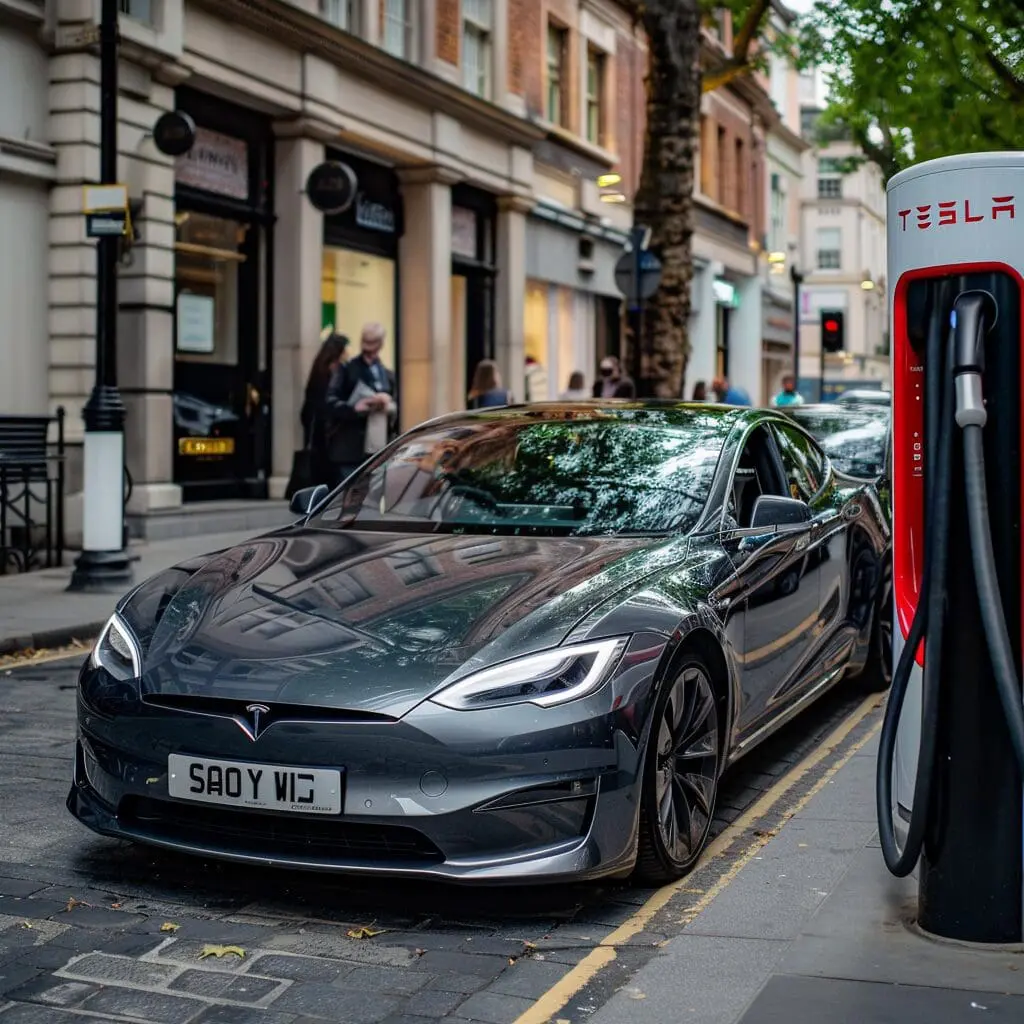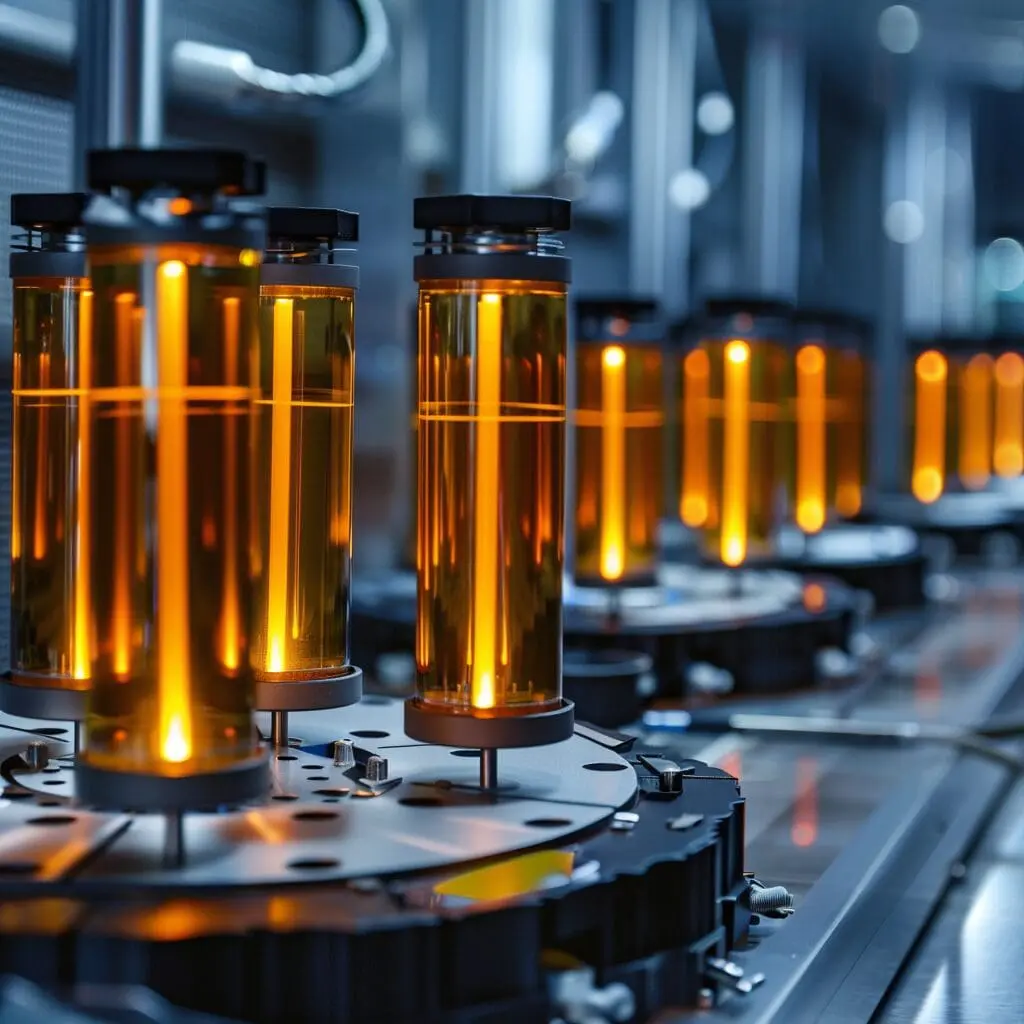

The introduction of the Ultra-Fast Charging Sodium-Ion Battery signifies a groundbreaking shift in the energy storage system landscape, emphasising sustainability and efficiency. A team of Korean doctoral candidates, with funding from the National Research Foundation of Korea, developed this innovative technology, setting a new standard for energy storage. The Sodium-Ion Battery, which excels in recharging devices and electric vehicles within seconds, offers a greener, more cost-effective alternative to traditional lithium-ion (Li-ion) batteries. Its superior performance and environmental benefits position the Sodium-Ion Battery as a leading contender to overcome the drawbacks of lithium batteries, including lithium-ion’s limitations. This advancement is not just a step forward in advancing electric vehicles by addressing range anxiety and charging infrastructure issues but also highlights the role of Sodium in leading the charge towards the future of renewable energy solutions.
The introduction of Na-ion battery technology marks a groundbreaking shift in energy storage systems, offering a compelling alternative to the dominance of lithium ions with the promise of rechargeable sodium ion batteries. This shift not only challenges the current hierarchy but also signals a new era of efficiency, sustainability, and accessibility in energy storage solutions. By harnessing the abundant and affordable sodium ions, these batteries represent a significant stride towards reducing environmental impact without sacrificing performance. Their ability to charge rapidly and their higher energy density elevate sodium-ion batteries as a key player in transforming energy storage systems. The emergence of this technology stands to revolutionise the electric vehicle landscape by addressing critical challenges such as prolonged charging times and range concerns, thus fostering a quicker adoption of cleaner, more sustainable energy consumption practices worldwide.
Sodium-Ion Batteries are redefining sustainable energy storage, leveraging sodium’s abundance and affordability over their lithium-ion counterparts. Sodium-based batteries offer a greener alternative to lithium-ion batteries, which are less abundant and require a more environmentally harmful extraction process. Sodium-ion cells significantly lower the carbon footprint of battery production and disposal, presenting a cost-effective and environmentally friendly solution. They reduce dependence on scarce resources, mitigating environmental impact. Amid growing climate change concerns and the search for renewable energy solutions, Sodium-Ion Batteries emerge as a key innovation, marrying economic and ecological sustainability and marking a significant advancement over lithium-ion batteries in the quest for greener energy storage.
The development of Sodium-Ion Batteries, a key milestone in sodium ion battery development, represents a leap forward in electrochemical science. These Na-ion batteries offer an ultra-high energy density that challenges traditional energy storage methods. Central to this breakthrough is the strategic utilisation of sodium, a resource more abundant and accessible than lithium, leading to significant cost reductions and minimised environmental impact. Sodium-ion battery applications benefit from advanced anode and cathode materials, ensuring rapid ion transfer for unmatched charging speeds and high energy retention. This advancement not only surpasses the performance of conventional lithium-ion batteries but also highlights the first sodium-ion battery as a major step towards a more sustainable and efficient energy future. Spearheaded by Korea’s National Research Foundation, this meticulous R&D effort positions Sodium-Ion Batteries as a powerful driver of innovation across various sectors, transforming our engagement with renewable energy and sustainable practices.
Sodium-Ion Battery cells mark a revolutionary shift in the electric vehicles (EV) landscape, presenting a viable alternative that aims to significantly widen the battery market. These batteries, utilising hard carbon in their cell chemistry, address key concerns of EV owners: range anxiety and inadequate charging infrastructure. By offering a solution that promises rapid and more efficient charging, Sodium-Ion Batteries, with their superior energy density compared to traditional lithium-ion cells, are setting a new standard. This innovation in battery technology not only improves the practicality of electric vehicles by facilitating quicker recharge times but also minimises environmental impact, contributing to global sustainability efforts. The introduction of Sodium-Ion cells, featuring a unique balance of energy density and rapid charging capabilities, is poised to drive wider acceptance of EVs, promising a future where personal and public transport is greener and more inclusive.
The advent of Ultra-Fast Charging Sodium (Na) Batteries, incorporating rechargeable Na battery technology, marks a significant milestone in the realm of electric vehicle (EV) technology, offering a beacon of hope for eliminating range anxiety among EV owners. This innovative energy storage solution, featuring hard carbon in its architecture as an alternative to commercial lithium-ion batteries, not only surpasses the current limitations posed by lithium batteries in terms of charging speed but also adheres to the principles of environmental sustainability. By dramatically shortening the charging times for EVs — comparable to the convenience of refuelling a gasoline-powered car — these ion batteries are poised to transform the EV landscape. The transition to sodium-ion technology, represented by these rechargeable Na batteries, is anticipated to significantly enhance consumer acceptance of electric vehicles, pushing us closer to realising the vision of a fully sustainable transportation system. This breakthrough in energy storage and the utilisation of hard carbon materials in rechargeable Na batteries signify a crucial step forward in overcoming the challenges associated with charging infrastructure and battery longevity, potentially heralding a new era in the mass adoption of electric vehicles.
The potential applications of Ultra-Fast Charging Sodium-Ion Batteries extend well beyond current focus areas, offering a sustainable and efficient energy solution that promises to revolutionise a multitude of industries. Unlike traditional lithium batteries, sodium-ion batteries, with their reported oxide insertion electrode, provide a promising alternative that could power remote, off-grid communities and enhance the resilience and efficiency of energy grids worldwide. The versatility of sodium-ion battery technology not only paves the way for innovative uses but also challenges the current dominance of lithium batteries in areas such as portable and emergency power storage, where reliability is crucial. As research and development in sodium-ion technology continue to advance, its future applications seem limitless, promising to redefine our approach to renewable energy, storage, and consumption on a global scale. The shift from theoretical research to practical reality with sodium-ion batteries represents a significant stride towards a sustainable, energy-efficient future, highlighting the critical need for ongoing investment and innovation in this burgeoning field.
The introduction of Sodium-Ion Battery technology, leveraging hard carbon anodes for enhanced performance, stands to revolutionise the global energy sector, offering a viable alternative to lithium carbonate-based batteries. This innovation promises to democratise access to renewable energy worldwide, potentially reducing the reliance on fossil fuels and aiding in the fight against climate change. Countries with abundant sodium resources might emerge as new leaders in the energy transition, challenging the traditional energy hierarchy dominated by oil-rich nations. Moreover, the replacement of lithium ions with sodium ions in battery technology could fast-track the adoption of electric vehicles, providing sustainable transportation options and significantly lowering the transport sector’s carbon emissions. Thus, this breakthrough not only marks a significant advancement in battery technology with the use of hard carbon anodes and sodium ions but also acts as a driving force for global environmental and energy sustainability, signalling a shift towards a more eco-friendly and energy-independent future.
The battery market is on the cusp of a significant transformation with the advent of Ultra-Fast Charging Sodium Ion Batteries, heralding a new era of sustainability in the global quest for cleaner energy options. These advancements in ion battery technology are not just theoretical but are paving the way for widespread changes across various industries. Electric vehicles (EVs), in particular, are set to benefit greatly, enhancing both their energy density and accessibility, while the field of renewable energy storage sees a bright future, offering new possibilities for off-grid communities and sophisticated energy grids. Sodium-ion batteries, with their impressive energy storage capabilities, are poised to redefine our energy consumption, storage practices, and efforts to minimise our carbon footprint. Their cost-effectiveness, superior energy density, and performance metrics position them as a groundbreaking solution in the battery market, pushing us towards a reality where sustainable energy becomes the standard. This transition to sodium-ion battery technology is crucial in reshaping our global energy strategies, aiming for a sustainable and energy-efficient future that is now within our grasp.

This website uses cookies to improve your experience. Choose what you're happy with.
Required for the site to function and can't be switched off.
Help us improve the website. Turn on if you agree.
Used for ads and personalisation. Turn on if you agree.
This website uses cookies to improve your experience. Choose what you're happy with.
Required for the site to function and can't be switched off.
Help us improve the website. Turn on if you agree.
Used for ads and personalisation. Turn on if you agree.